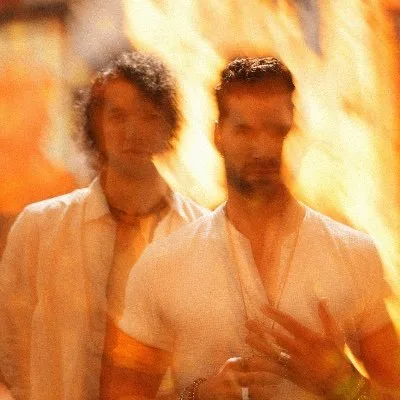For we know that if the earthly tent which is our house is torn down, we have a building from God, a house not made with hands, eternal in the heavens.
– 2 Corinthians 5:1
He pulled into the nursing home parking lot with a heavy heart.
He opened the mechanical door and it engaged, swinging wide. Inside, the usual nursing home smells met him as he made his way to his mother’s darkened room. The curtains were pulled, and a deep silence shut out the sounds in the hall.
She was nearly ninety-one years old. The wreath of white hair framing her frail face belied her fierce nature and the long battle she had waged to live. She appeared to be sleeping, but her gnarled fingers picked at her sweater as if to straighten it out across her swollen belly.
He stood for a moment, debating whether to awaken her. He decided against it, prayed a quiet prayer over her, and tiptoed out of the room.
Less than an hour later, he received the call she was dead.
Nearly two weeks ago, we buried my mother-in-law, remembering her life with tears and reminded we never know what hour will be our last.
Most of us struggle to come to terms with our mortality. Some of us dread suffering. Others are tormented by the fear there is nothing beyond the grave.
The Apostle Paul was a tentmaker by trade. It was common for the nomadic people of the Middle East to live in tents at the time the New Testament was penned. In 2 Corinthians 5, Paul uses the imagery of tents to help us understand the nature of the physical body and immortality.
Our bodies, Paul tells us, are tents, like those portable dwellings we take with us on trips. They are built for travel, so they are lightweight—at the expense of durability. They offer some shelter against the elements, but they can’t protect us against all threats.
We live in tents. But we are not the tent. We’re just using the shelter until we return home.
From the outside, the tent is the only thing we see. When we move on, we leave the shell behind. It can be burned or buried or preserved, but it is only what’s left of the flimsy dwelling we used while we were here. If I came across an empty tent in one of our beautiful national parks, I would just assume the owner was elsewhere.
Not dead; just absent.
Living in a tent is not a comfortable existence. Paul acknowledged “while we are in this tent we groan, being burdened, because we do not want to be unclothed but to be clothed, so that what is mortal will be swallowed up by life.” (2 Corinthians 5:4) Because we have never seen anything other than the outward shell, we question and fear what lies beyond our physical bodies.
He is; we are.
Christ’s death and resurrection redeemed those who love Him from judgment, assuring us that death is not annihilation but a temporary separation. He is the great and eternal I AM, and we are made eternal in His image.
While you dwell in this tent, be encouraged that you are more than what is seen. In fact, you are.
The last enemy that will be abolished is death.
– 1 Corinthians 15:26











![Strings And Heart – ily anyway [Visualizer]](https://cmaddict.com/wp-content/uploads/2026/01/strings.webp)










Leave a Reply